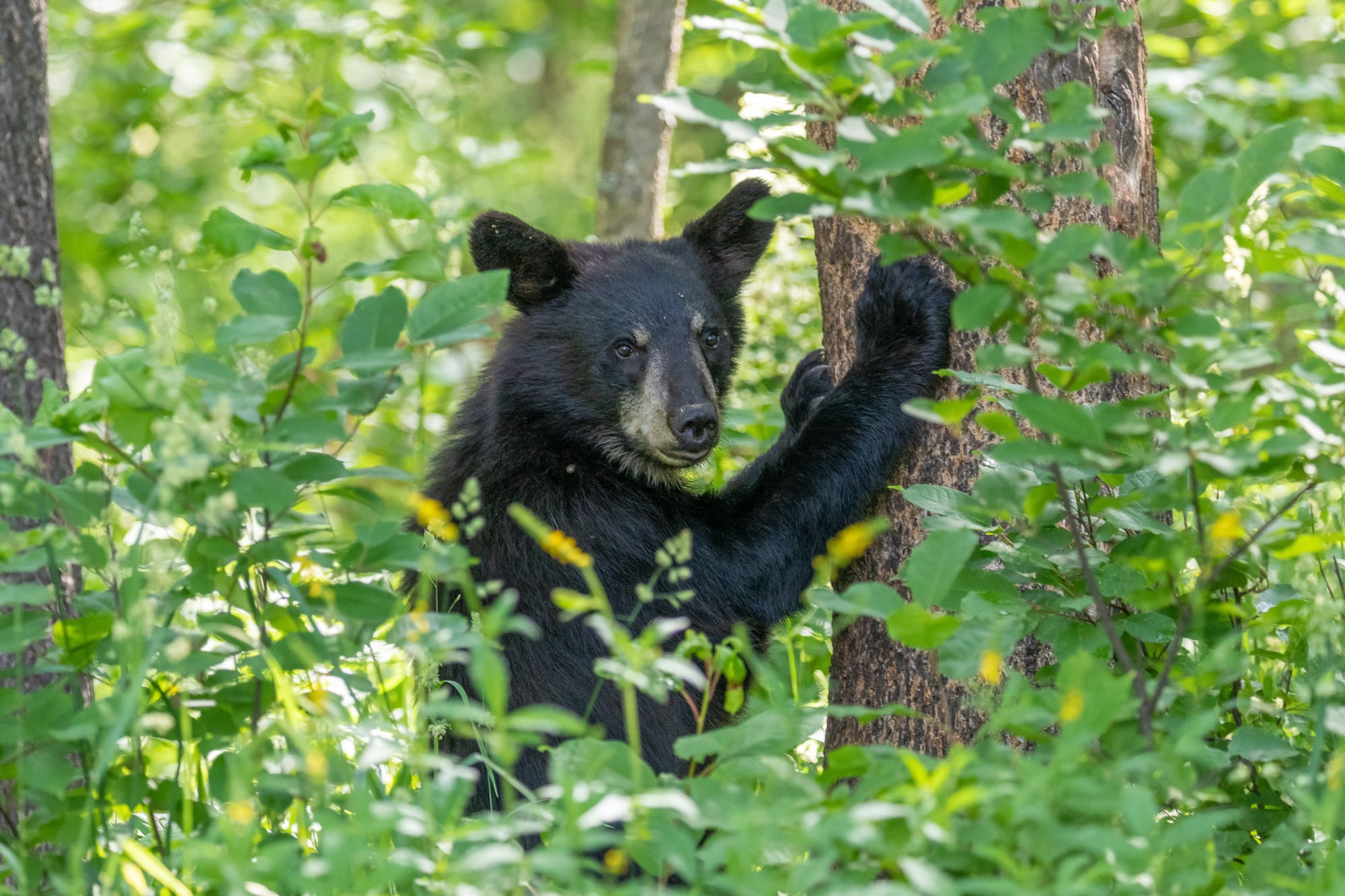
Federal officials are warning visitors to the Boundary Waters Canoe Area Wilderness about an uptick in the number of human-bear encounters. Despite what biologists say was an excellent year for bears’ favorite foods, like berries and acorns, several sites have seen repeated reports of conflict between people and the animals.
Reducing bears’ access to human food is a way to not only protect visitors, but also the bears.
“Once a bear is ‘rewarded’ with human food or garbage, it is likely to become habituated and continue the behavior, which could ultimately lead to the bear being dispatched,” said Superior National Forest wildlife biologist Cheron Ferland.
Most of the bear encounters have been reported on the east side of the Boundary Waters, in the Gunflint Trail/Grand Marais area, on the following lakes: Clearwater, Rose, Duncan, Alder, Moon, and Caribou. On the west side of the wilderness, in the La Croix/Cook area, a problem bear has been reported on Agnus Lake.
Wildlife experts say there are several steps that visitors can take to prevent any problems with bears, and to help ensure the bears don’t get in the habit of harassing humans for food. Overall, keeping a clean campsite is considered the best method. All food, as well as items with strong odors like toothpaste and lip balm, should be stored out of reach or in a bear-proof container.
Notably, the blue barrels that are popular to use for food storage in the Boundary Waters are not considered bear safe by an national committee that studies techniques for reducing bear-human conflict. Coolers are also not sufficient protection for food, unless they are on the Interagency Grizzly Bear Committee list of bear-resistant containers.
Additionally, the Forest Service recommends washing dishes immediately after food preparation and consumption, at least 200 feet from the campsite. For car camping, food and other items should be stored in hard-sided vehicles. Fish remains should also be disposed of at least 200 feet from campsites, and visitors should avoid leaving food packs unattended at the end of portages, as bears can become habituated to such areas where food is frequently available.
The Forest Service says that if a visitor encounters a bear, they should make as much noise as possible, which will usually scare the animal off. Pepper spray may be needed for more persistent bears.

